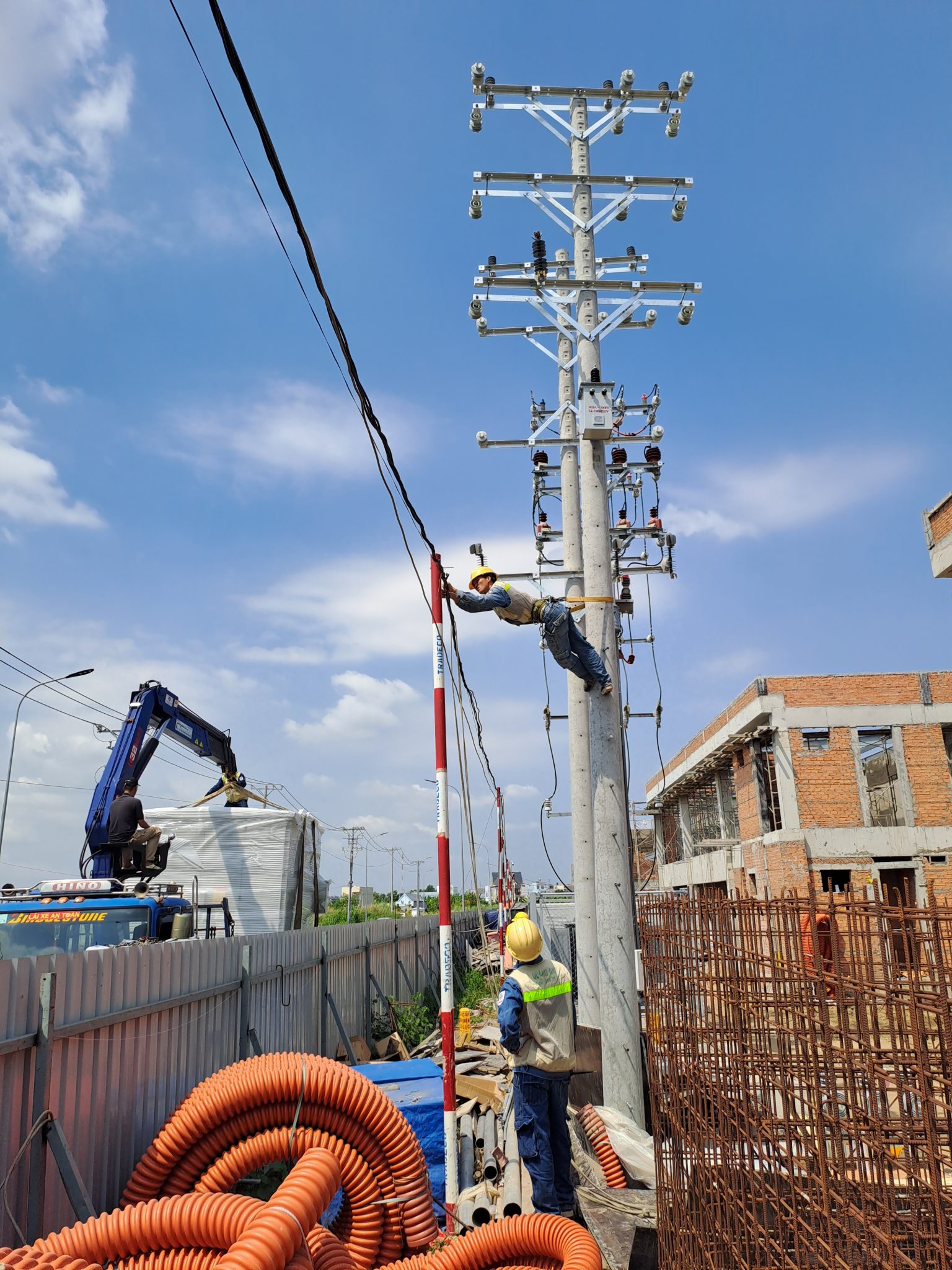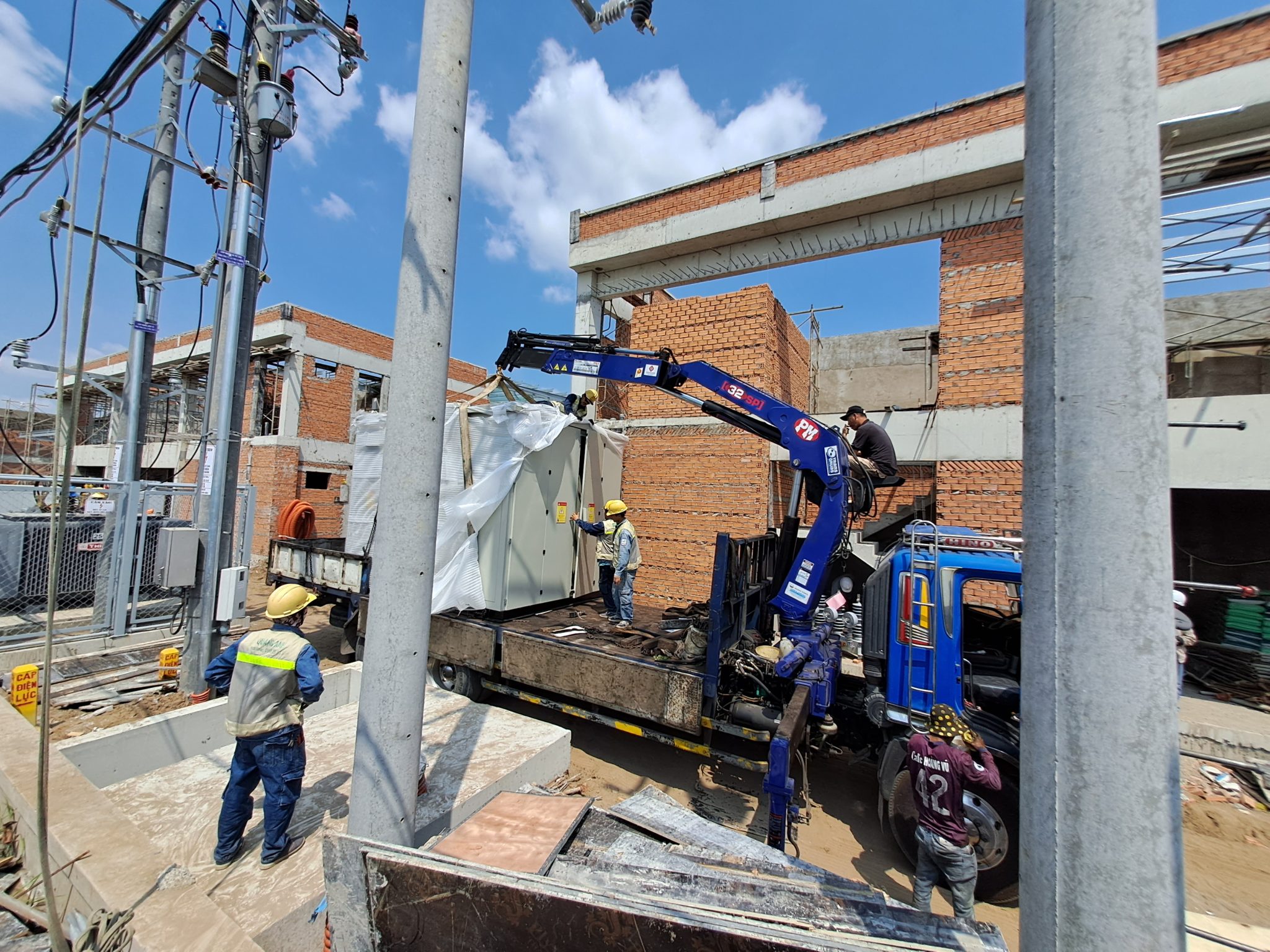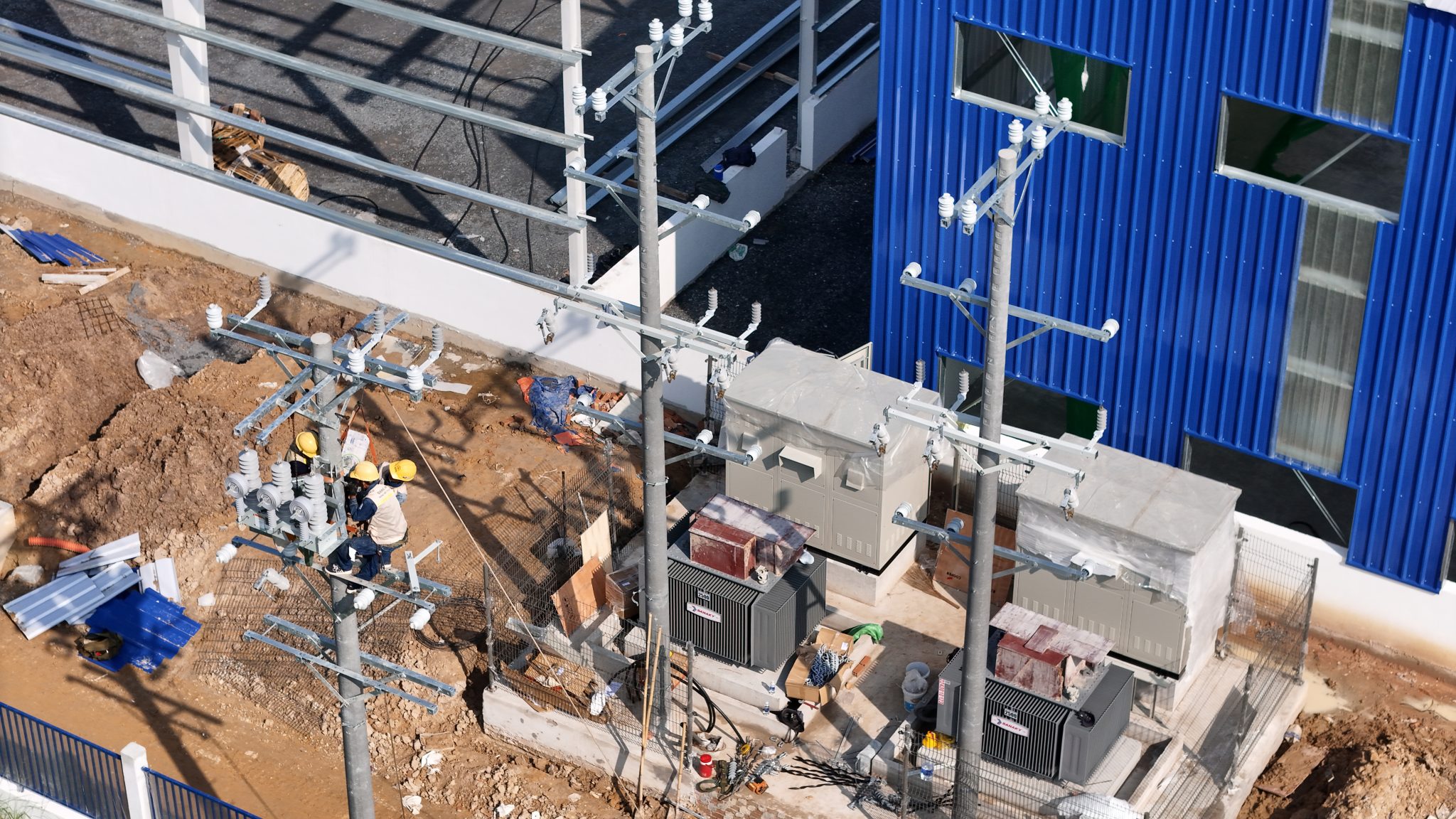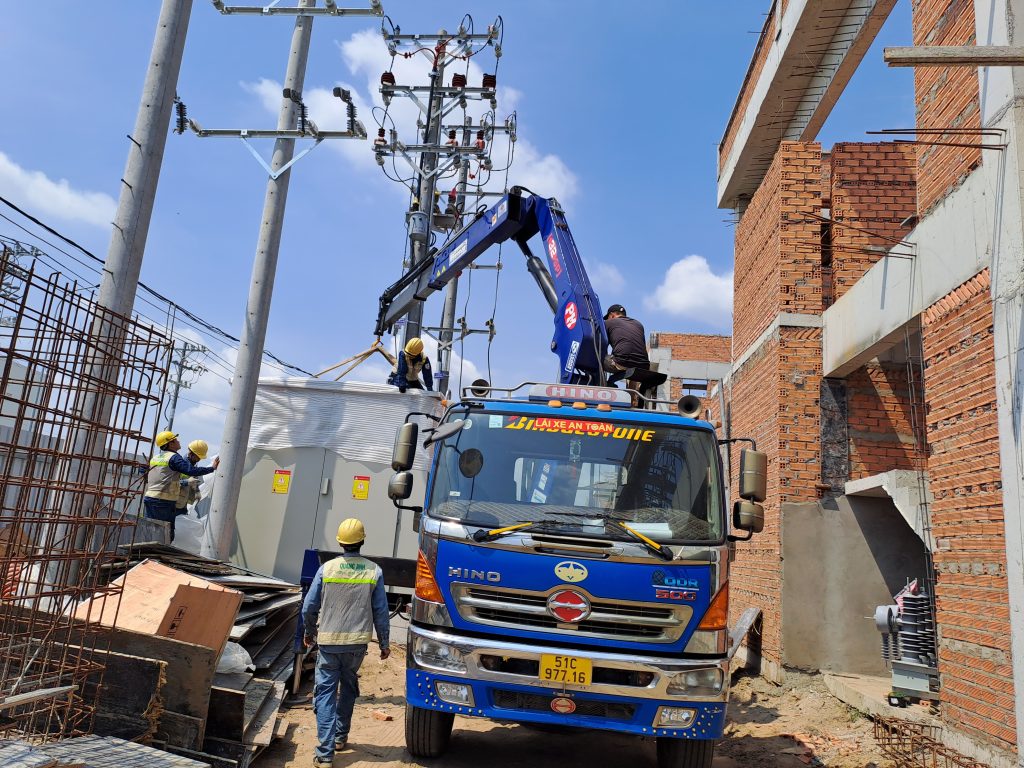News
Comprehensive HVAC Solutions for Factories: Efficiency and Optimization of Industrial Environment
The comprehensive HVAC solution for factories includes an integrated system of air conditioners, ventilation fans, and air filters, meeting the demand for a safe working environment and energy efficiency.
Components and Functions of HVAC Systems in Factories
The comprehensive HVAC system for factories includes air conditioners to efficiently adjust temperature. Ventilation fans play a role in supplying fresh air and removing polluted air, maintaining air quality. Besides, high-performance air filters like HEPA can remove up to 99.97% of dust particles as small as 0.3 microns, ensuring clean air in the manufacturing environment.
Components of the HVAC System
The HVAC system in a factory is an assembly of advanced technical equipment designed to improve working conditions and meet production requirements. Specific components include:
- Fans: This is an essential part to circulate air in and out of the factory, helping to exchange air efficiently and maintain stable temperature. Fans push air through ducts and mixing chambers, ensuring air circulation.
- Air Duct System: This system transports temperature-adjusted air to various areas in the factory, ensuring effective air conditioning.
- Mixing Chamber: This is where indoor air is mixed with outdoor air to stabilize air quality and temperature.
- Air Filters: High-quality filters like HEPA filters help remove small dust particles, keeping the air fresh.
- Heat Exchange Equipment: Includes hot and cold coils, which are involved in the process of heating or cooling circulating air, creating desired air conditions.
- Boilers, Heaters, Heat Pumps: These components provide heat for the entire heating system in the factory, using flexible fuels such as electricity, coal, and gas.
- Compressors and Condensers: These are important devices in circulating and maintaining the temperature of the refrigerant.
- Water Pumps: Necessary for circulating water through the heat exchange system, ensuring effective cooling or heating in large areas.
- Automatic Control System: Automates and optimizes the operation of the HVAC system, providing maximum energy savings.
Functions of the HVAC System
The HVAC system not only has a complex structure but also plays an important role with many specialized functions:
- Temperature Control: The HVAC system ensures maintaining an appropriate temperature for the working environment and material and equipment preservation, thereby enhancing production productivity.
- Maintaining Air Quality: The process of filtering dirt, bacteria, and controlling humidity is continuously carried out to create a healthy working environment.
- Industrial Ventilation: The system assists in circulating fresh air from outside, preventing mold and pollution in the production area.
- Energy Efficiency HVAC: Thanks to automation, the HVAC system can reduce energy consumption and optimize operational costs in the long term.
Modern HVAC Systems in factories not only support air conditioning but also integrate other functions like Air Quality Control and Heat Exchange to minimize energy consumption, meeting the strictest environmental standards.

Advanced Technology and Optimal Management of HVAC Systems
Modern HVAC solutions use ULPA filters for cleanrooms and smart management systems to control temperature and humidity. Temperature sensors and automatic controllers help optimize environmental conditions and energy saving. Smart building management systems play a crucial role in maintaining high performance and sustainability.
Optimal HVAC systems are becoming a breakthrough field, thanks to the integration of smart technology and IoT. Smart HVAC systems allow remote management via phone or computer, optimizing energy efficiency and reducing operating costs. Using sensors to detect human presence, the system automatically adjusts temperature to match the space conditions and number of people in the room.
An important factor in optimal HVAC systems is improving indoor air quality. Technologies like HEPA filters and UV-C germicidal lamps are widely applied to enhance air quality, ensuring health and safety for workspace and living environment users.
Environmentally friendly refrigerant solutions are replacing hydrofluorocarbon (HFC), helping to reduce negative environmental impacts. Moreover, noise reduction technology has been significantly improved, providing a quieter and more effective user experience.
In the industrial HVAC sector, participating in exhibitions like Cleanfact Vietnam 2025 and RHVAC Vietnam 2025 is very popular. These events gather many of the latest products and technologies, allowing businesses to access advanced technical solutions.
Optimal management of HVAC systems requires the integration of IoT and sensors, collecting real-time operational data for management software to analyze and optimize adjustments. This not only enhances energy efficiency but also reduces maintenance costs. Flexible response to environmental conditions and changing usage demands is a decisive factor in maintaining a healthy environment and saving energy.

Energy Saving Solutions with HVAC Systems
HVAC systems use heat recovery technology to save energy and direct current motor fans with low power consumption. Fireproof materials ensure safety and reduce CO₂ emissions, contributing to environmental protection and sustainable development.
In the modern context, energy-saving solutions for HVAC systems are not only necessary but also bring clear economic benefits, especially when applying HVAC energy saving solutions. Regular maintenance and system checks help maintain HVAC efficiency at its best by reducing energy consumption affected by dirt and damage. Using smart control systems and programmable thermostats helps optimize temperature adjustment based on actual needs, reducing energy waste due to unnecessary operations.
One of the advanced solutions is applying inverter technology to pump, fan, and refrigeration compressor motors. This technology allows adjusting operation speed according to load demand, thereby significantly reducing energy consumption compared to full capacity operation. The variable refrigerant flow (VRF) system automatically transfers the refrigerant to necessary areas, saving energy through uneven temperature handling.
Furthermore, reducing outdoor air and increasing indoor air recycling ratios contribute to reducing cooling and heating energy loads. This allows downsizing the HVAC system, reducing investment and operating costs. Technologies like PlasmaSOFT combined with Plasma Air are examples of solutions that can reduce outdoor air by up to 75%, saving over 30% of energy while still ensuring air quality.
Additionally, using ceiling fans to support air circulation helps maintain comfortable temperatures even when the air conditioner is set at a higher temperature, saving energy during cooling. Maintaining airflow within the system is critical, ensuring vents and ducts are always clear.
Particularly, awareness and knowledge of HVAC system principles and operation play important roles in energy saving. Managers or technicians who understand these principles can perform effective adjustments and maintenance. Finally, reasonable building design and renovation will help reduce heat loss, reduce cooling/heating loads, and thus lower overall energy needs for the HVAC system.

Comprehensive HVAC solutions for factories bring many technical benefits, cost optimization, and environmentally friendly features. Modern integrated HVAC systems not only ensure a safe and comfortable working condition but also significantly save energy.
Contact QuangAnhcons immediately via Hotline: +84 9 1975 8191 for detailed consultation on comprehensive HVAC solutions for your factory.
QuangAnhcons provides comprehensive HVAC solutions for factories, including design consulting, installation, maintenance, and system upgrades, meeting modern standards for safety and energy efficiency.

 Tiếng Việt
Tiếng Việt 简体中文
简体中文 Deutsch
Deutsch 日本語
日本語 한국어
한국어 ไทย
ไทย Русский
Русский Français
Français
